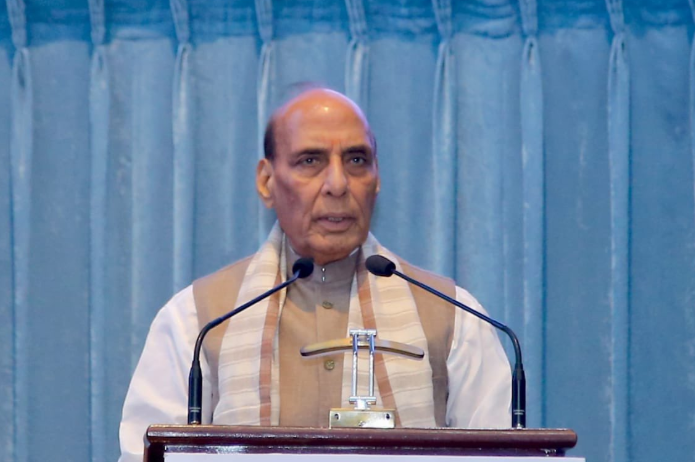Defence Minister Rajnath Singh’s recent speech in Parliament outlines India’s strong and decisive approach against terrorism under Prime Minister Narendra Modi’s leadership. Highlighting key moments like Operation Sindoor, the 2016 surgical strikes, and diplomatic victories at BRICS and SCO, the speech reflects India’s transformation from strategic restraint to assertive action. Singh also criticized past policies that labeled Pakistan a victim of terror and emphasized India’s resolve to respond forcefully to any future threats.
India’s Bold Anti-Terror Shift Under Rajnath Singh’s Leadership
In a powerful and deeply patriotic address to the Indian Parliament, Defence Minister Rajnath Singh laid out a comprehensive roadmap of India’s evolving stance on terrorism and national security. His speech was a sharp critique of past indecisiveness, a celebration of recent bold actions like Operation Sindoor, and a reaffirmation of India’s zero-tolerance policy on terrorism under the leadership of Prime Minister Narendra Modi.
Rajnath Singh began by recalling a significant strategic misjudgment from 2006, when during the Havana Summit, India agreed to a joint anti-terror mechanism with Pakistan—ironically recognizing Pakistan as a victim of terrorism. He questioned how a nation that nurtures and exports terror could be given such a status, calling it a strategic blunder that weakened India’s global positioning on terrorism.
Highlighting the ideological front in the fight against terrorism, Singh mentioned that India has moved beyond just military engagement. He referred to multiple high-level delegations, consisting of members from across political parties, who effectively presented India’s case on international forums and helped strengthen global support for India’s anti-terror position. He expressed deep gratitude to those delegation members for presenting India’s zero-tolerance policy on terrorism and explaining the details of Operation Sindoor globally.
Operation Sindoor was a focal point of his address. Rajnath Singh praised the cross-party solidarity shown during the operation. He stated that all political parties, irrespective of ideological differences, stood united with the soldiers and the government, showcasing the strength of Indian democracy. He reiterated PM Modi’s message that Operation Sindoor has not ended—it is paused. Should Pakistan attempt any misadventure again, India is prepared to respond with even more decisive and harsh action.
Recalling the famous lines of Ramdhari Singh Dinkar, Rajnath Singh pointed out how India’s past restraint was misunderstood by adversaries as weakness. Now, under PM Modi, India has showcased its military strength, moral clarity, and political will. He said the surgical strikes in 2016, Balakot airstrikes in 2019, and now Operation Sindoor were messages that India will not only retaliate but also act preemptively if needed.

Rajnath Singh detailed India’s diplomatic assertiveness as well. At a recent Shanghai Cooperation Organization (SCO) meeting, India refused to sign the joint declaration because it did not reflect India’s strong stance against terrorism. This bold stand ensured that no joint statement was issued. Later, during the BRICS summit in Brazil, thanks to PM Modi’s efforts, for the first time in BRICS history, a joint declaration condemned terrorist attacks in Jammu and Kashmir, despite China’s presence—a historic diplomatic win.
He contrasted this with the lack of international condemnation after the 2008 Mumbai attacks. Despite the attack’s severity, the global response was tepid, and major international documents did not even mention the incident. Quoting Pranab Mukherjee’s book, “The Coalition Years”, Singh noted that there were demands for military retaliation after Mumbai, but the then-government decided against it. He also cited Ajay Bisaria, a senior diplomat, who confirmed that a proposal to strike Lashkar-e-Taiba’s base in Muridke with cruise missiles was dismissed during that time.
Rajnath Singh emphasized that if similar actions like the 2016 surgical strikes or 2019 airstrikes had been taken back then, Pakistan’s strategic behavior could have changed sooner. He made it clear that while he was not criticizing any specific leader or party, the difference in today’s approach is significant. Under PM Modi, dossiers have been replaced by decisive actions. Today, India does not tolerate terrorism—it responds with force.
The Defence Minister further reiterated India’s refusal to bow to any nuclear blackmail or international pressure. Through Operation Sindoor and earlier military actions, India has drawn a new Laxman Rekha, making it clear that no shelter will be given to those who support or sponsor terrorism.
In his closing remarks, Rajnath Singh urged all parties and citizens to rise above political lines and strengthen India’s collective national resolve. He reassured the Parliament and the country that the government, military, and democratic institutions are fully committed to protecting India’s unity, integrity, and sovereignty. He called for strengthening this resolve with unity and reminded the House that India’s biggest strength lies in its social and political cohesion.
Finally, Singh declared that those supporting terrorism have received a clear message: India will defend its motherland with all its might. The time has come, he said, to stand together as a nation and send a strong message that India is determined, unified, and capable of uprooting terrorism from its soil.

